The rock face across the river stood sentry over what, from my limited Atlantic salmon experience, looked like the perfect stretch of fishy water. The river, fresh from a manic tumble over a frothy cascade, fell into an emerald green pool that hugged the basalt wall like a kindergartner clinging to his mother on the first day of school.
I flipped the Sun Ray tube fly into the head of the deep water and let it flutter downstream, where it kind of hovered over the modest school of late-run salmon thanks to an invisible upwelling that refused to let the bug gain depth. Then, the river's current seized the fly and sent it on a swing through the tailout.
That's when I saw the wake. A V-shaped arrow emerged from the pool with the purpose of a guided torpedo, and it closed on the fly. I waited in anticipation as the big fish closed the distance on the streamer.
This was happening. My first day on Iceland's beautiful and remote Holkna River, and I was about to seal the deal on an elusive September salmon. I was ready. Tense. Aware.
"Eat it," I whispered. "Eat it. Come on."
The current pulled the fly from deeper water, and the wake disappeared. No love for the Sun Ray. Frustrated, I lifted the rod and immediately recast to the head of the pool. I had a player. But I needed to feed it again.
"That was probably a mistake," Guðmundur Guðlaugsson explained later that evening after I relayed the episode to him. Simply nicknamed Goomy, because the American tongue doesn't wrap around Icelandic names very well, our guide for three days on the Holkna was quick to provide blunt advice. "That's when you wait a bit, and let the fish get back and get settled. If you cast again too fast, it won't be ready. And it might spook the whole pool."
It was good advice, and not just for salmon. Think about it. When just about any game fish with a predator's curiosity takes the time to inspect your offering, and then refuses it, it pays to understand that the fish left its comfortable holding water to consider taking a swipe at something. A quick cast back to the "scene of the crime" is very likely to produce absolutely nothing.
Curious trout, bass, pike or char need to settle in again by returning to its holding water or hiding place. And that may take time.
By putting another cast right back on the water without giving the disturbed fish a chance to return and get comfortable, you could be casting to an empty spot. Or, as Goomy explained, with spooky fish like Atlantic salmon or spring-creek trout, your quick recast could put other potential targets on edge and possibly spook several fish.
The key, of course, is to just hurry up and wait. Take a quick breather. Count to 30. Give the fish time to get back into its routine, and give other nearby fish the chance to acclimate to the small bit of chaos that just occurred.
Another thought: the fish expressed interest. That's a good thing. But it didn't express enough interest to actually eat. Maybe, while you "let the pool" settle, as a good Atlantic salmon guide might say, consider changing flies and giving the interested fish something new to look at.
If you’ve ever fished with a guide, you know this move. You’ve cast over some really great holding water, or perhaps you’ve watched a fish or two move over to look at a dry fly or (perish the thought!) a nymph, only to refuse the bug. Your guide might tap you on the shoulder and say, “Hey man, let’s switch that fly out for something else.”
The fly switch might be necessary, but likely just as important is the time it takes — to clip off the existing fly, sift through a fly box, find a replacement pattern, and then tie it to the tippet — which gives the fish you’re after a chance to reset and settle back into its rhythm.
As my Icelandic friend noted, in situations where fish leave their “happy place” to pursue something to eat (or, in the case of that Atlantic salmon on the Holkna, something to punish for invading its space), it makes sense to allow the fish some time to regroup and get back to some semblance of comfort. And, if the fish is part of a group holding in the same water, it’ll reduce the chances of spooking the entire pool.
“Fish want to be happy,” Goomy said that evening after fishing. “Do whatever you can do to keep them happy. If they’re not happy, they’re not going to eat. If they’re happy, they’re going to eat.”
Simple, right?





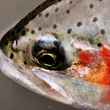

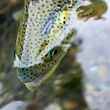




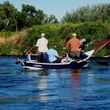


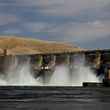

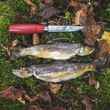



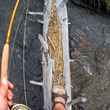
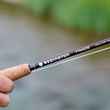
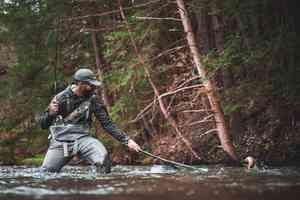

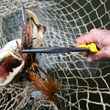





Comments